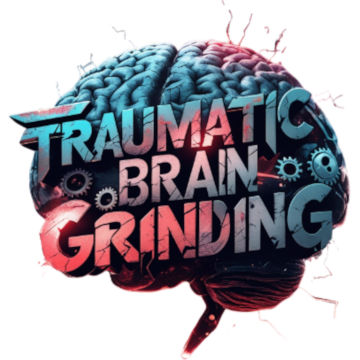The Hidden War: Mental Health and Suicide Risk After a Traumatic Brain Injury
Most people hear the words traumatic brain injury and imagine helmets, car crashes, or maybe sports concussions. But what if I told you that the real war often begins after the injury — in the quiet moments, in the dark, in the mind?
Let’s talk about something that doesn’t get the spotlight nearly enough: the mental health crisis that follows many traumatic brain injuries (TBI). It’s a hidden aftermath that too many survivors face alone.
More Than Just a Bump on the Head
A TBI doesn’t just affect your skull — it can rewire how you think, feel, and respond to the world. Depression, anxiety, PTSD, substance abuse, and even suicidal thoughts often follow in its wake.
In fact, the data is chilling.
A large-scale study published in JAMA Psychiatry tracked over 850,000 U.S. Army soldiers and found that those with a history of even mild TBI were twice as likely to die by suicide as their peers without one.
📚 Source: TIME article on TBI and suicide risk
This isn’t just a military issue. Civilians experience the same trauma — from car accidents, falls, or assaults — but without the VA or military structure to lean on.
Why Does This Happen?
The brain is command central for mood regulation, impulse control, and stress processing. When it’s injured, all those systems can go haywire. Add in chronic pain, memory loss, sleep disorders, or difficulty maintaining work and relationships, and the emotional load becomes crushing.
Many TBI survivors describe feeling “like a different person,” disconnected from who they were before the injury. And that identity shift can spiral quickly into depression, hopelessness, and isolation.
The Silence is Deadly
What makes this even harder is that many people — including doctors — don’t fully understand the long-term psychiatric effects of TBI. Symptoms are often brushed off as “just stress” or “part of recovery,” leading to underdiagnosis and delayed treatment.
As a result, survivors are often left to navigate their new reality without a map.
So What Can We Do?
Talk about it: Normalize conversations around TBI and mental health. The silence feeds stigma.
Screen early and often: Doctors should routinely assess TBI patients for depression, PTSD, and suicidal ideation.
Push for policy: Advocate for long-term care funding and integrated mental health services in TBI rehab plans.
Support each other: Friends and families play a crucial role — stay connected, ask questions, listen without judgment.
You’re Not Alone
If you or someone you love is struggling after a brain injury, know this: the storm is real, but so is the support.
📞 988 Suicide & Crisis Lifeline — call or text 24/7.
🧠 Brain Injury Association of America (BIAA): https://www.biausa.org
❤️ Local therapists who specialize in trauma or neuropsychology can be game-changers.
TBI doesn’t end when the swelling goes down. For many, that’s just the beginning. Let’s change the narrative, break the silence, and build a world where brain injury survivors get the mental health support they need to truly heal.
Traumatic Brain Grindin’ the movement....

